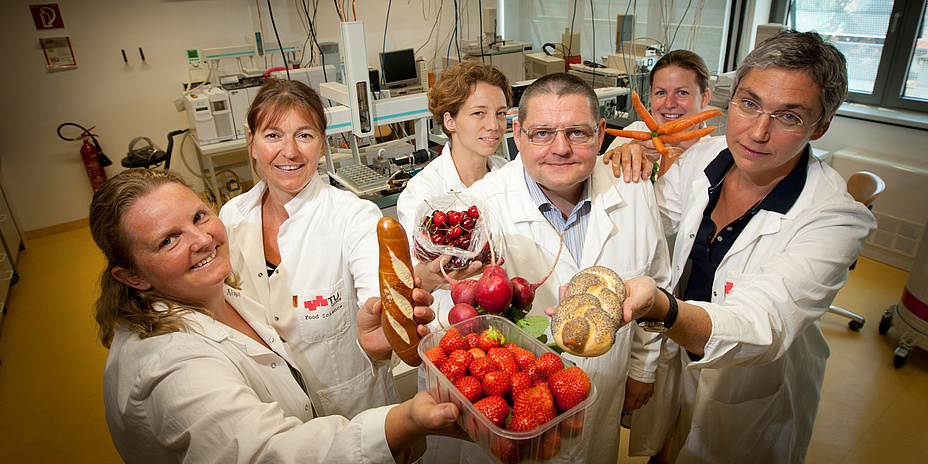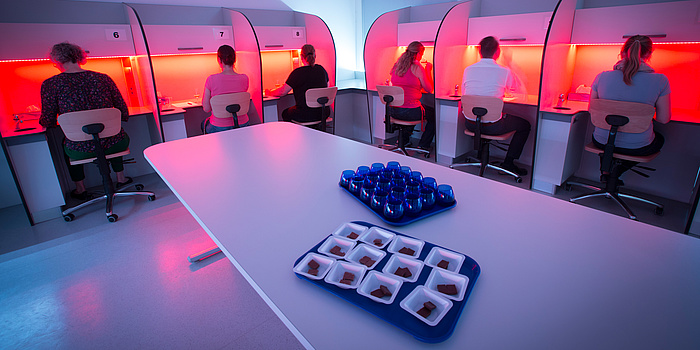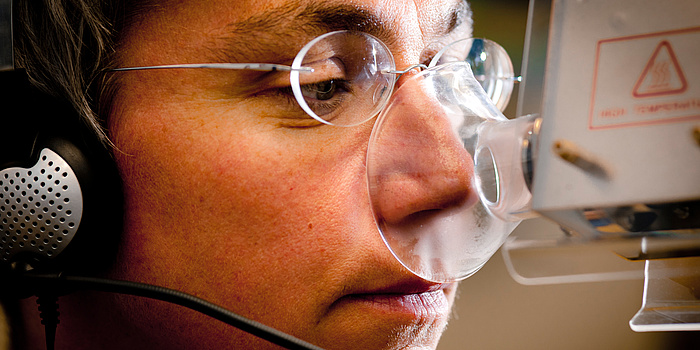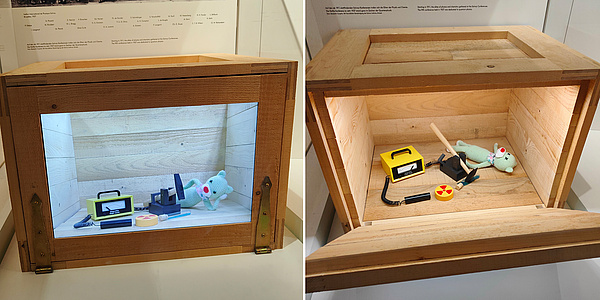Now accounting for tastes?

News+Stories: What exactly happens in sensory evaluation?
Barbara Siegmund: We examine both foodstuffs and non-food materials, investigating anything from food packaging to wood pellets. We use all our senses in this evaluation process – we sniff things, taste them, assess how they look or feel and sometimes also listen to how they sound, like the crunching of potato crisps for example.Is this all a matter of how “good” a food tastes?
Barbara Siegmund: Well that all depends. One of our test approaches involves using a consumer panel. These are completely untrained lay people, who make their judgements based on the subjective feeling of whether or not they think something “tastes good”. We have a panel of around 400 consumers for this task and we invite them in small groups to take part in tests. Last Monday for example, a spicy sandwich spread was passed around, while a little before that we were testing horseradish and also pumpkin seeds.
How do you train this ability? Is there a standard for how something edible should taste?
Barbara Siegmund: No, there aren’t any standards for the taste of food. When we are working in the off-flavours area for example, we do not train people how to find the right taste, but how to recognise the sensory flaws behind any off-flavour. There is no such thing for instance, as a single “apple juice” standard, what we have instead is a broad range of aromas all of which are entirely satisfactory. The experts must be able to recognise the off-flavour if there is one, and be in a position to describe it in detail. This is a process that I compare with learning vocabulary.Is all of this something that needs a strong stomach?
Barbara Siegmund: It is up to the experts to decide for themselves whether or not to swallow the test samples. I myself, for example, spit out almost every sample I taste. Many products are also only smelled. And we certainly never taste a product if there is the least suspicion that it could be damaging to the health.
How do you become an expert?
Barbara Siegmund: The people are trained here by us in the working groups. We offer sensory evaluation training sessions that our experts must attend. The sense of taste or smell can also change in different circumstances. A basic sound capability for smelling and tasting is the essential basis. There are also many different taste and smell deficiencies and people are frequently not even aware of these. I myself for example, am unable to perceive coconut flavours, and I only found out about this in the course of my work. It takes around six months for a test person to qualify as a full working member of our expert panel.What are you like when you go out for dinner? Do you analyse every dish in critical detail? Can you ever switch off the taste expert in your mind?
Barbara Siegmund: Yes you can definitely do that. But that being said I also place a great deal more emphasis now on quality and regional origins – with a focus on freshness, short transport distances and product excellence. But this does not mean that we never have simple spaghetti or pancakes on the plate at home. I buy a lot of food at farmers’ markets. And I use my nose and smell items a lot more frequently than I did formerly to find out for example, why it is that I really like the taste of something or other.
Kontakt
Dipl.-Ing. Dr.techn. Univ.-Doz.
Institute of Analytical Chemistry and Food Chemistry
Stremayrgasse 9/II
8010 Graz, Austria
Phone: +43 316 873 32506
<link int-link-mail window for sending>barbara.siegmund@tugraz.at


![[Translate to Englisch:]](https://www.tugraz.at/fileadmin/_processed_/9/8/csm_banner-thek-by-privat_a42f57f7b3.jpg)

